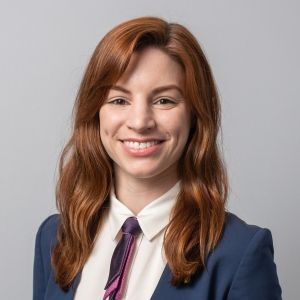Research Focus
Moira Dillon is a cognitive scientist and developmental psychologist. She explores the origin of our uniquely human capacity for abstract thinking, mostly in the domain of geometric reasoning. To do so, Dillon conducts behavioural experiments with infants, children, and adults probing the development of high-level spatial concepts from basic spatial sensitivities. She has also broadened and deepened this basic-research exploration through international field work, in collaboration with economists, educators, and policy makers, to create scalable educational interventions for children living in poverty.
My plans for the fellowship period
During the fellowship period, I plan to expand my research on infant cognitive development by harnessing state-of-the-art tools for portable and online data collection. In particular, I’m interested in bringing technology for infant research to the homes, schools, and communities of resource-poor areas of the developing world, in which socio-economic inequalities cause achievement gaps in education. Along similar lines, I plan to build on my school-readiness interventions to explore the relative effectiveness of physical versus digital learning materials. The role of technology in education is constantly changing, and physical and digital materials have unique advantages and disadvantages, which need to be evaluated in real learning contexts. Finally, I plan to focus on characterizing those spatial intuitions of older children and young adolescents that might support their formal learning of more advanced geometric concepts in school. Indeed, many children hit a wall when facing these essential concepts in formal mathematical learning, which can affect their access to higher-paying jobs requiring such mathematical competency.
How will my work change children’s and youth’s lives?
My work aims to address pervasive socio-economic problems that stem from achievement gaps in mathematics education. To do so, I first aim to uncover the basic and universal spatial intuitions humans rely on when confronted with difficult and novel geometry problems. Second, I aim to apply these findings to field settings, informing pedagogies that harness cutting-edge science to reinforce the strengths and supplement the limitations of these spatial intuitions. These pedagogies aim to keep children in school, improve their reception and retention of higher-level concepts in mathematics, boost their learning outcomes, and ultimately better prepare them for future learning and employment. Through my collaboration with the Jacobs Foundation’s international network, my existing international collaborations, and my local partnerships in New York City, my work promises to reach thousands of individuals in the general public, as well as teachers and policy makers who can effect change in the lives of children. I believe that, in order to understand the effects of inequality on human development, education, opportunity, and society at large, theory and practice must develop in tandem through research using diverse methods in the complex and noisy real-world contexts in which we live and learn.


